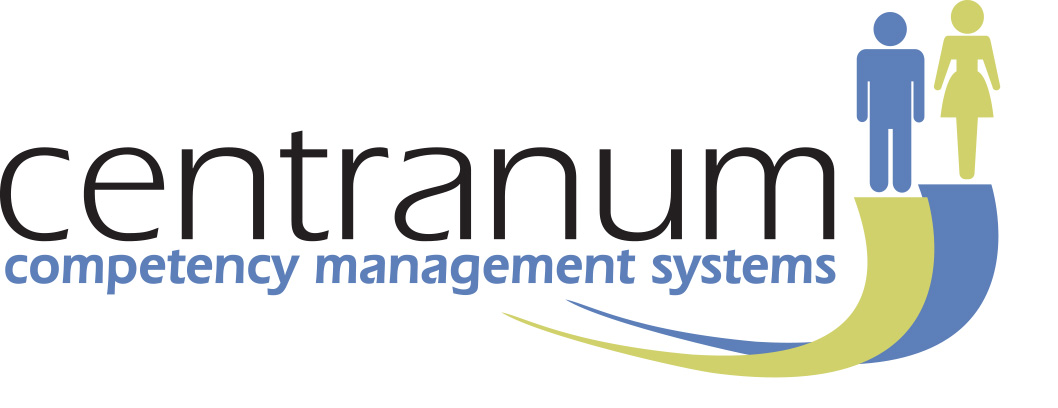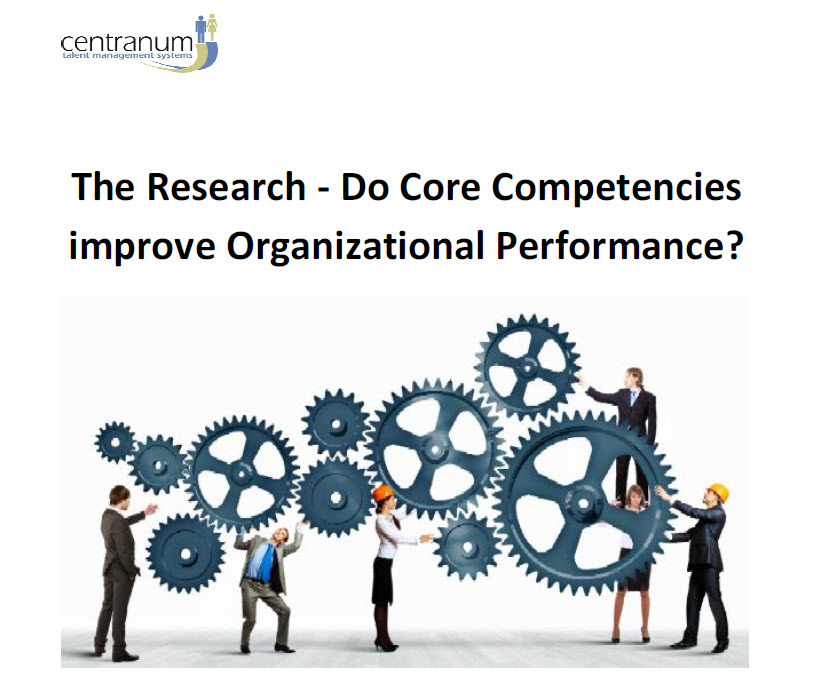Workforce Capability Challenge Survey - Findings 2020
What do senior management figures see as key challenges since the pandemic. Is there a difference between early and late 2020?
Background
The Centranum software has 3 main solution areas: capability development, performance management, talent & succession planning. Any individual who downloads information is asked to provide their current key workforce challenge.
Responses reported are of the ONE key challenge cited by individuals downloading competency management resources from our website during 2020. The summary of findings from the first half of the year is available here as a separate report.
The kinds of challenges mentioned are of course influenced by the roles of our website visitors. Most are senior managers in HR, Learning and Development, or Organizational Development, with a few managers from Operational areas.
Of course challenges reported are also related to the themes of information resources on our web site.
This summary looks at the competency related challenges reported in the last half of 2020 and compares them with those from the earlier period.
Evolving Issues, Themes and Priorities
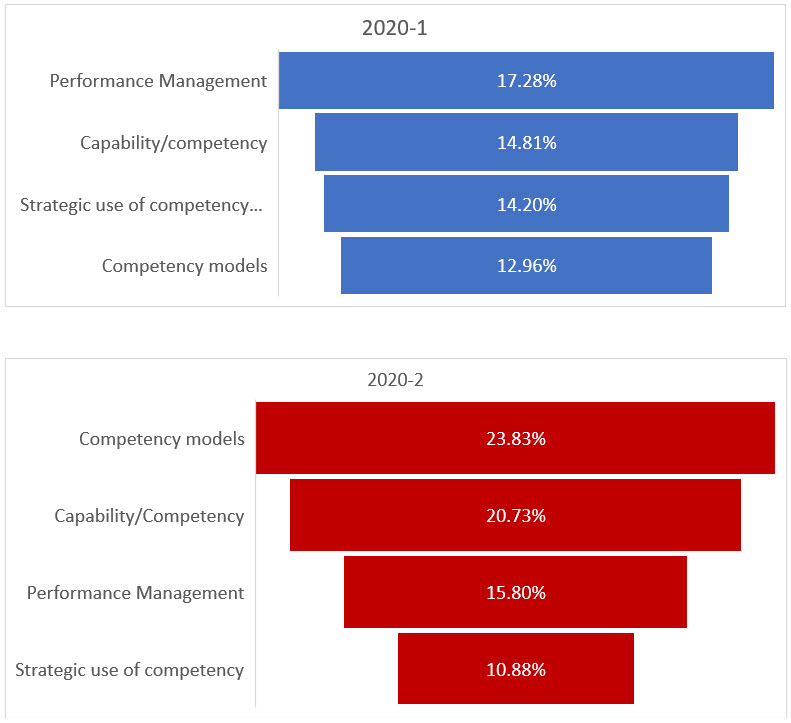
The major themes from the first part of the year are still priorities in the second half. The number of those reporting key competency related challenges increased by almost 240%
In early 2020 workplace performance was the dominant challenge, followed by achieving, maintaining and tracking competency/capability, with the strategic use of competency management next, and establishing competency models in fourth place.
In the second half of the year developing competency models and achieving, maintaining and tracking staff competency/capability are reported as the key challenge almost three times more often than workplace performance management.
This result may be partially due to the pandemic. With many workplaces closed for on site work, and other staff working remotely, conventional performance management was likely impractical.
Nevertheless it does follow the prior trend for HR and Operational Managers to be moving from their pre-occupation with performance management to a greater focus on Capability.
Performance is dependent on the competence of the workforce, as well as a clear understanding of performance expectations, and a supportive wok environment.
Analysis of the challenges reported in the Capability area shows that organizations are looking more in depth into how they define, track and develop staff competence.
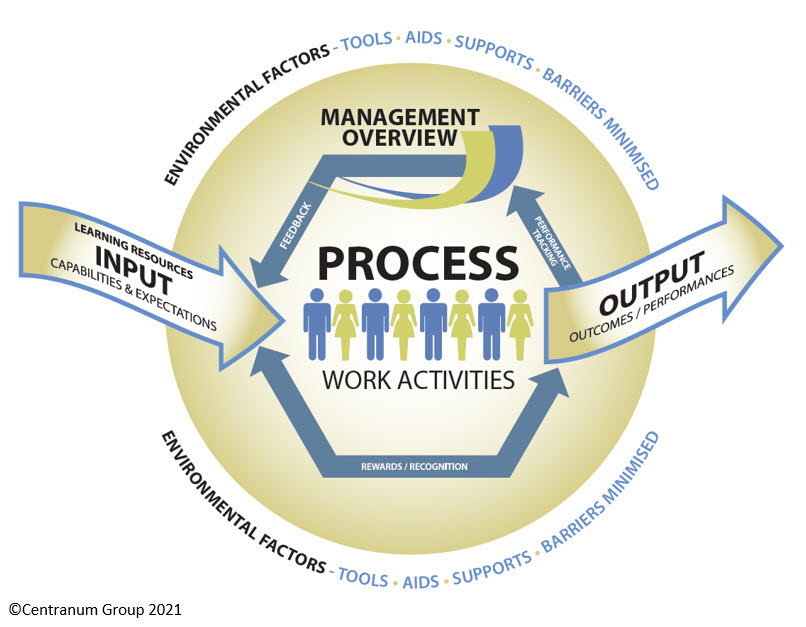
Developing Competency Frameworks
Of those who reported that developing a competency framework was their major challenge, most, over 80%, had no framework and faced the challenge of where to start as they explored competency management. This is in contrast to the early part of the year where the challenges were more about how to successfully use competency models.
Now only 17% were looking to map competencies across job roles. Only one respondent said they were looking to identify future competency needs.
Overall the results indicate a greater interest in using competency models as a management tool.
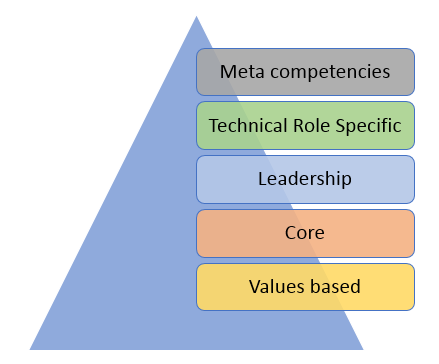
In contrast to the first half of the year very few specifically mentioned core competencies. Of those who said their challenge was a particular competency area, over half cited a lack of management and leadership competency.
Small numbers were looking at social and cultural competencies. A few mentioned meta-competencies such as cognitive skills and adaptability.
Technical competencies were rarely mentioned. This despite the fact that job specific knowledge and skill is the single best predictor of successful job performance.
Many vendors of generic competency libraries claim their offerings are statistically related to better performance. Unfortunately this is not true. Little research is published by proprietary vendors. What there is reveals that only those competencies that equate to intellectual ability and the personality factors of conscientiousness and agreeableness have any measurable impact on individual performance.
Achieving, tracking and maintaining Capability Levels
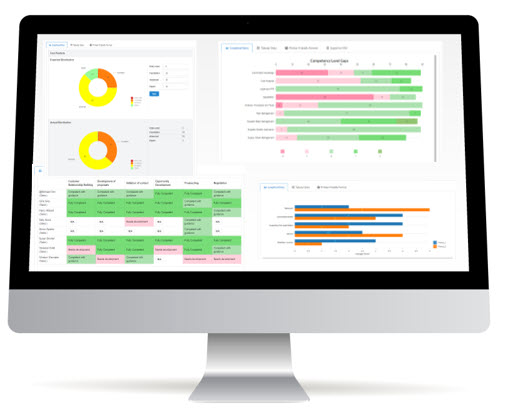
In the first half of 2020 over two thirds of respondents mentioning capability challenges said understanding and tracking competency was their key challenge. Later in 2020 just under one third reported this, but almost as many said that workforce Capability in general was their major challenge.
Distinct from being able to track competencies across the organisation, 25% of respondents in the latter part of 2020 said they faced issues in assessing competence.
Competency and Performance
Continuing the theme from the first half of 2020 almost no respondents downloaded information on performance management systems per se. As we said then such systems have been discredited and the various approaches suggested for their replacement (such as removing ratings) are not yet validated.
The percentage of respondents looking at competency as a way to update performance management was similar at 16% versus 17% in the first half.
When using competency in the context of performance it is essential to be clear about the relationship between competency and performance.
Of those citing staff Performance as their biggest challenge almost half (42%) said that identifying a suitable model or approach to performance management was their objective. Close behind, 36% of respondents said their challenge was improving performance, some specifically mentioning accountability. 13% were concerned with how they could track performance, with a further 5% mentioning setting of performance targets as a challenge. Finally 8% of respondents said getting the right on job behaviour is a challenge with some specifically mentioning teamwork.
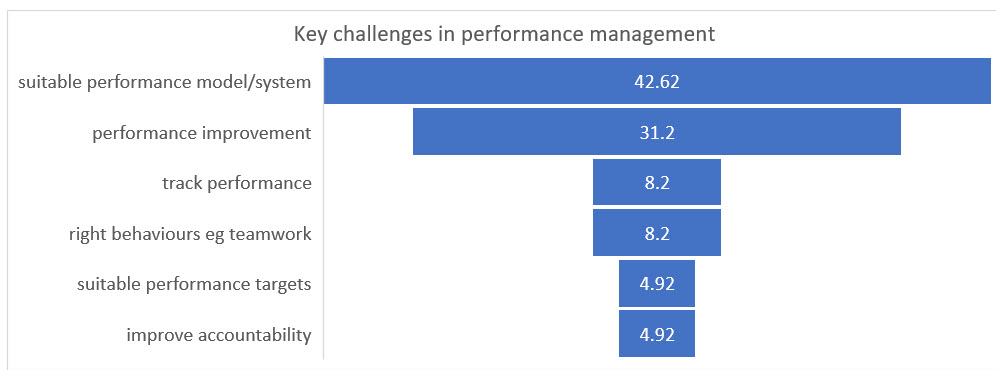
Strategic Use of Competency Management
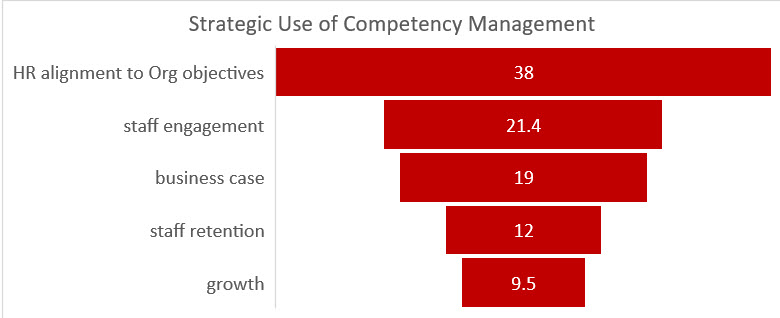
Fewer respondents reported challenges in strategic human resource management in the second half of the year – just under 11% versus 14% in the earlier period.
Previously the most common challenge was developing people to improve Organisational productivity and growth. In the last 6 months of 2020 the challenge of aligning HR processes to achieve this was reported by 38% of these respondents. A further 19% were looking at the business case for implementing competency management to achieve this alignment. 21% mentioned a need to engage staff or improve their experience of work, with another 12% finding staff retention their major challenge.
Culture and Change
Previously 10.5% of respondents mentioned the need to improve or change organisational culture as their biggest challenge. In the second half of the year this reduced to 7%. However the challenges mentioned were more practical, less aspirational.
Previously the language was about cultural transformation (one third) or a more gradual cultural alignment with organisational priorities (one third) or building a more supportive culture for staff (one third).
In the second half of the year the most frequently mentioned challenge was ‘change’. Changes based on the pandemic were mentioned by some, with a need to develop resilience, reduce conflict and promote growth and improve performance some of the specifics. The overall theme was more
Learning & Development
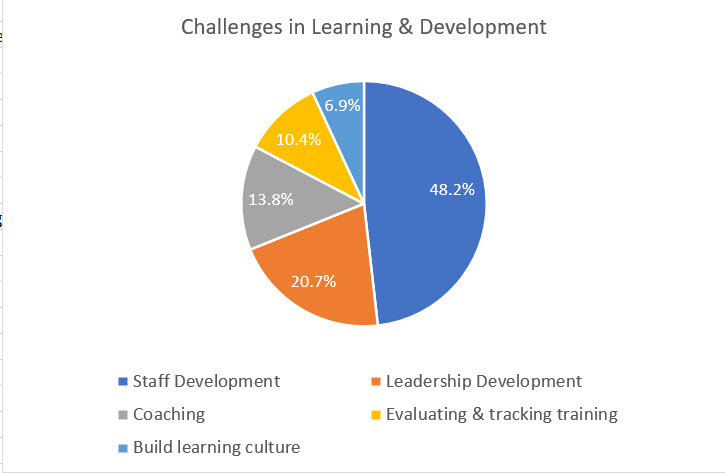
The percentage of respondents seeing Learning & Development as their major challenge remained very similar – around 8%.
For most of these, the major challenge is again the development of staff – with again fewer citing leadership development.
Challenges are more specific in the second half. Respondents mentioned the challenge of implementing coaching. Others reported evaluating and tracking training effectiveness as a key issue.
Succession Planning
Succession Planning was not mentioned at all as a challenge in the early part of the year. In the second half over 5% of respondents said it was their key challenge.
Most of these (38%) said that developing career and development pathways was their key issue. Another third were concerned about a lack of talent pipeline and bench strength. Just under a quarter said that planning for succession is a key challenge.
Some specifically mentioned the challenge of assessing individuals, both in terms of competencies and for promotion potential.
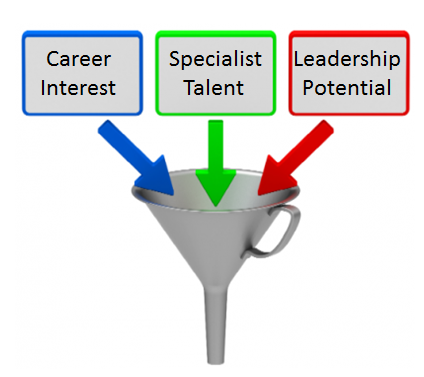
Competencies in recruitment
Fewer people reported recruitment as a key challenge in the second half of 2020. 5% versus 8% in the earlier part of the year. No doubt Covid had an impact here.
Most were looking for a way to ‘find the right people’. Of note, some respondents were looking to develop models and assessments they could use for recruitment.
As mentioned in our previous research report it is hard to use competencies in recruiting because ‘soft’ competencies are not easily assessed. Technical and functional competencies need a sophisticated recruitment approach with job simulation exercises.
